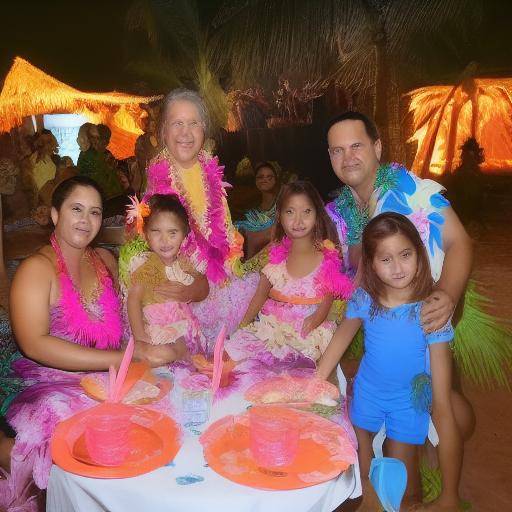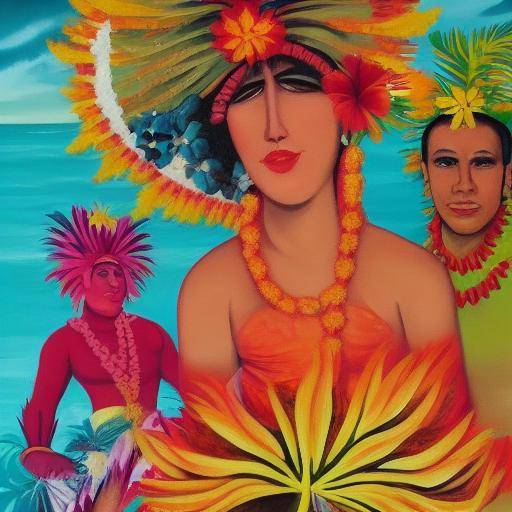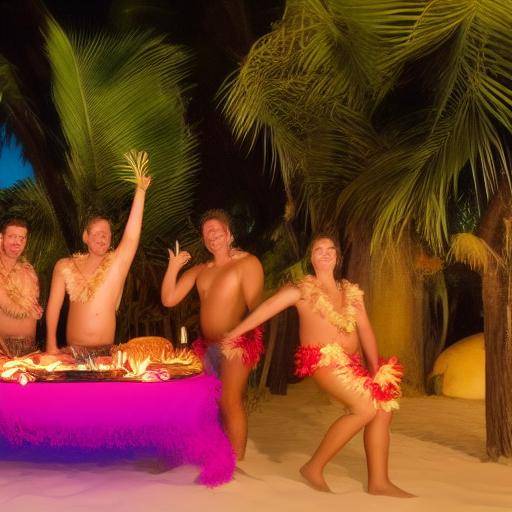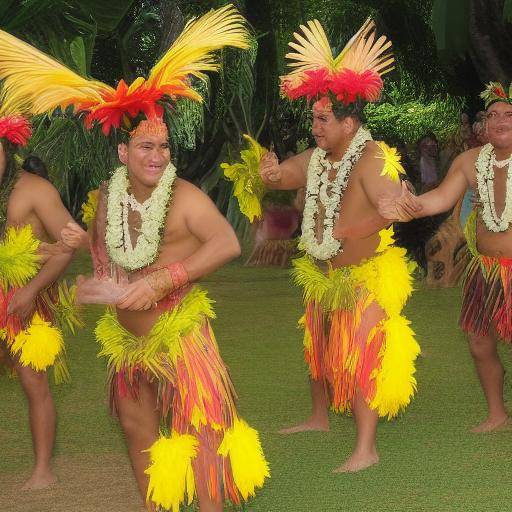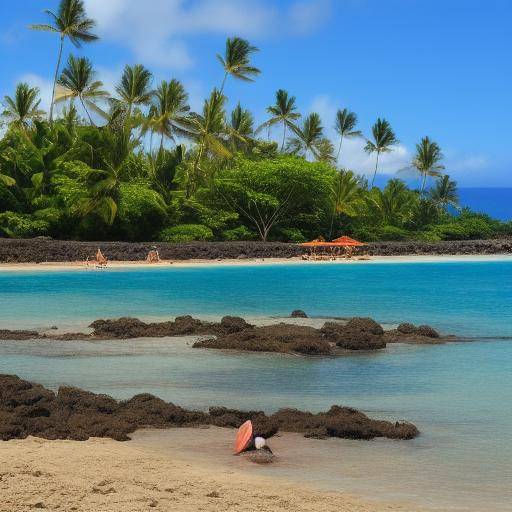
Introduction
What is a Hawaiian luau? What is the relationship between luau and sustainability? What impact does ecotourism have in Hawaii? If you've ever asked these questions, you're in the right place. In this article, we will explore the fascinating world of Hawaiian luau from a perspective of marine sustainability and conservation, discovering the rich history, current practices, and future trends. Join us on this journey towards a deeper understanding of the intersection between Hawaiian culture, ecotourism and the preservation of the marine environment.
History and Background
Hawaiian luau is a tradition rooted in the island culture that dates back centuries. Its roots are intertwined with community celebrations that emphasize the connection with the earth and the ocean. Originally, the Luau celebrated the harvest and showed respect for nature, highlighting the dependence of the Hawaiian community on natural resources for its livelihood. Over time, the luau evolved to include entertainment, dance, traditional music and banquets, becoming an emblematic tourist attraction of Hawaii.
The Evolution of Luau
With the growing popularity of tourism in Hawaii, Luau experienced a significant transition. What used to be an intimate and meaningful holiday, became a marketed show for the enjoyment of visitors and locals alike. This transformation posed challenges in terms of cultural preservation, environmental impact and sustainability.
Luau and Sustainability
Luau, in its modern form, faces sustainability-related criticism, particularly with regard to marine conservation. Increased tourism has generated concerns about resource exploitation, ocean pollution and coastal ecosystem degradation. In addition, the celebration of Luau has generated a debate on respect for cultural authenticity and the preservation of ancestral traditions.
Analysis in Deep
Challenges and Opportunities
The impact of tourism in Hawaii goes beyond luau, covering the management of protected areas, the conservation of endangered species and the sustainability of local communities. We will analyze the challenges facing the authorities, conservation organizations and tourist operators in the balance between tourism development and the preservation of the natural environment.
Sustainable practices
We will explore in detail the sustainable strategies and practices that are being implemented in the context of Hawaiian luau. From recycling and waste reduction initiatives to the promotion of local food and the adoption of renewable energy, we will immerse ourselves in concrete actions that are contributing to marine conservation and sustainability in the field of ecotourism in Hawaii.
Innovation and Sustainable Technology
Technology plays a crucial role in promoting sustainable tourism practices. We will study how innovation, such as the use of solar energy in tourist facilities, the implementation of environmental management systems and the adoption of sustainable maritime transport, is shaping the transformation towards a more environmentally friendly tourism in Hawaii.
Future Trends
The next steps in the intersection between luau, Hawaii, and ecotourism point towards greater integration of sustainability in the tourist experience. From the inclusion of environmental education in luau activities to the promotion of community participation in marine conservation, we will explore trends that will shape the future of ecotourism in Hawaii.
Conclusion " FAQs
Conclusion
In short, Hawaiian luau, as a cultural and tourist manifestation, is at a turning point crucial in its evolution towards sustainability. The preservation of cultural authenticity, the protection of the marine environment and the promotion of responsible tourism practices are essential to ensuring the long-term viability of luau and ecotourism in Hawaii. By addressing these challenges comprehensively, Hawaii can pave the way for a tourism model that harmonizes respect for cultural heritage and environmental conservation.
FAQs
**1. What does the word "luau" mean?**The word "luau" has its origins in the Hawaiian language and refers to a festive meal or banquet.
**2. What are the traditional elements of a Hawaiian luau?**Traditional elements include music, hula dance, the exchange of flower necklaces called "leis" and the preparation of food cooked underground known as "kalua pig".
**3. How does luau relate to marine conservation?**Modern luau has generated concerns about the impact on marine conservation due to increased waste, pollution of coastal waters and pressure on marine ecosystems.
**4. What steps are being taken to promote sustainability at luau events?**Practices such as recycling, the reduction of single-use plastics, the use of renewable energy and the promotion of local food are being implemented to promote sustainability at luau events.
**5. How can a tourist contribute to sustainability during a Hawaiian luau?**Tourists can adopt responsible practices, such as waste management, preference for local products and participation in environmental education activities offered during the luau.
**6. What is the role of the local community in promoting sustainable tourism in Hawaii?**The local community plays a vital role in advocating for responsible tourism practices, preserving cultural authenticity and participating in marine conservation initiatives to ensure a harmonious balance between tourism and the natural environment.
With this article, we hope to have provided an enriching vision of Hawaiian luau from the perspective of sustainability and ecotourism in Hawaii. The preservation of the rich cultural heritage and the protection of marine ecosystems are fundamental pillars to ensure a vibrant and sustainable future for luau and tourism in Hawaii.

